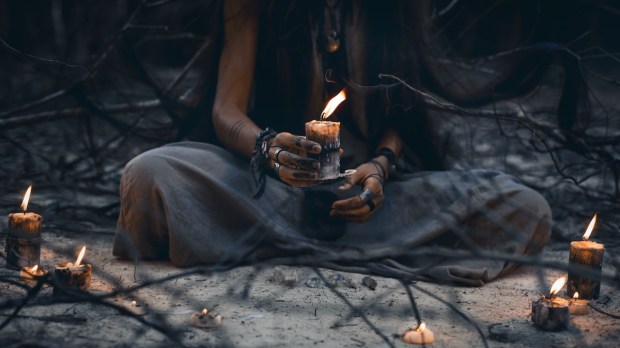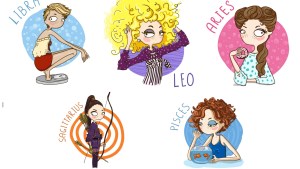It’s odd that, to this day, if you bring up witchcraft, you often hear: “There’s no such thing!”
In fact, there is such a thing as witchcraft — and its practice is again on the rise.
“Why are women turning to witchcraft?” asks one recent news report, and answers: “Experts say the COVID-19 pandemic, social media platforms like TikTok, and a yearning for personal growth could play a role.”
What, exactly, is witchcraft?
When news reports say “witchcraft,” they mean any number of occult religious practices, tarot and psychic readings, and New Age crystal meditations.
Universities worldwide are starting to take witchcraft more seriously, often treating it as an ancient alternate religion that was persecuted by the Church and the society the Church built. But at Brandeis University’s Women’s Studies Research Center, Hellen Berge says “Witchcraft is the activity of practicing magic. There is usually a spiritual component, but there’s a misconception that it is always associated with a religion.”
NPR interviewed Diana Helmuth, author of The Witching Year, A Memoir of Earnest Fumbling Through Modern Witchcraft, said that witchcraft is hard to pin down.
She said Wicca and witchcraft are not the same thing. Wicca is a religion created in the 1950s. “Wicca is very small, and witchcraft is very big,” she said, listing many “subcultures within witchcraft or that overlap with witchcraft, like astrology and tarot.”
The Catechism lists many of the same practices these women do in its teaching on Divination and Magic and says they “contradict the honor, respect, and loving fear that we owe to God alone.”
Helmuth added that a rival deity — “the Goddess” — is “a central figure in almost every form of witchcraft,” seen as a supernatural being or a metaphor for the earth.
Women who leave witchcraft describe it as a dead end.
A writer friend of mine has shared the stories of witches-turned-Christian on Facebook. Their stories describe the appeal — and shortcomings — of witchcraft.
“I used to practice witchcraft,” Jordan Taylor says in an account of her story I found here. It made her feel “trappedin a continuous cycle of healing and ‘upleveling,’” she said. She would feel good after each session, but the feeling would wear off, because beneath it all “I was suffering and in a deep pit of depression. I longed to feel loved, heard, and understood. My soul lacked a sense of belonging.”
Traditional religion was the last place she would look for that, though. “I felt so allergic to the G-word [God], I almost unfriended a New Age colleague who had recently come to Christ because she couldn’t stop talking about Jesus.”
But God broke through. “He met me in my stubbornness. In my sin. In my depression,” she said. “I reluctantly watched a movie about Jesus to appease my boyfriend at the time. I watched and sobbed hysterically. I was overcome by an intense feeling of love. Something I had never ever felt before. The kind of love that I was desperately chasing in all the wrong ways. That’s when I knew God was after my heart.”
Another story comes from Kayla Bortic, a former TV psychic.
“I taught everything from Numerology to Astrology, Trance Mediumship, Channeling, Tarot, Angel cards, accessing Akashic records, Psychic Mediumship, Reiki, Past Life Regression, Chakra Balancing, Breathwork, Manifesting … everything!” Bortic says on Facebook,
But in the end, “My entire life was destroyed by Satan but it wasn’t obvious because at first glance, it seemed all ‘love and light,’” she said, but, “Everyone I ever met in the industry has serious problems or health conditions in their life too.”
Now, “I am completely set free from insomnia, depression, addictions, anxiety and complex PTSD from years of malevolent life-altering childhood trauma. I don’t fear anything, I literally have faith in Jesus because I walk with the Lord now. … How beautiful it is to know that in amongst God creating all the stars, the rivers and the mountains He thought He needed one of you too!”
You can see their stories echoed in the interview with Helmuth, who is still pursuing witchcraft.
Growing up in the Bay Area, “It was very clear to me that if you were smart, you were an atheist,” she told NPR. “I wanted to be thought of as intelligent, so I rejected most religion and most spirituality throughout most of my life.”
Later in life, though, she realized “I was tired of God being dead. I didn’t want to feel like I didn’t care about the divine anymore. I wanted to admit to myself that I did care, that I did want to feel held by the divine.”
So she turned to witchcraft for the same reason many people are turning to astrology: We know science alone can’t explain the universe, and a culture that tells us it can leaves us hungry and hurting.
We were made to worship God, and if no one in our life offers him to us, we go looking. Offer him to the people in your life.



